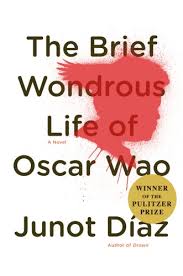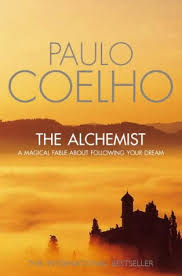Our April 2012 Book Club Hostess, Anjanette has decided to continue the "let the people" pick fun and has four choices for everyone to pick. Please go to
http://www.surveymonkey.com/s/2P386MJ to make your selection.
Here are the options:
1)
The Brief Wondrous Life of Oscar Wao

Things have never been easy for Oscar, a sweet but disastrously overweight, lovesick Dominican ghetto nerd. From his home in New Jersey, where he lives with his old-world mother and rebellious sister, Oscar dreams of becoming the Dominican J. R. R. Tolkien and, most of all, of finding love. But he may never get what he wants, thanks to the Fukœ-the curse that has haunted the Oscar's family for generations, dooming them to prison, torture, tragic accidents, and, above all, ill-starred love. Oscar, still waiting for his first kiss, is just its most recent victim.
D’az immerses us in the tumultuous life of Oscar and the history of the family at large, rendering with genuine warmth and dazzling energy, humor, and insight the Dominican-American experience, and, ultimately, the endless human capacity to persevere in the face of heartbreak and loss. A true literary triumph, The Brief Wondrous Life of Oscar Waoconfirms Junot D’az as one of the best and most exciting voices of our time.
2)
Endurance: Shackleton's Incredible Voyage

The astonishing saga of polar explorer Ernest Shackleton's survival for over a year on the ice-bound Antarctic seas, as Time magazine put it, "defined heroism." Alfred Lansing's scrupulously researched and brilliantly narrated book -- with over 200,000 copies sold -- has long been acknowledged as the definitive account of the Endurance's fateful trip.
To write their authoritative story, Lansing consulted with ten of the surviving members and gained access to diaries and personal accounts by eight others. The resulting book has all the immediacy of a first-hand account, expanded with maps and illustrations especially for this edition
3)
The Alchemist

"My heart is afraid that it will have to suffer," the boy told the alchemist one night as they looked up at the moonless sky." Tell your heart that the fear of suffering is worse than the suffering itself. And that no heart has ever suffered when it goes in search of its dreams."
The Alchemist is the magical story of Santiago, an Andalusian shepherd boy who yearns to travel in search of a worldly treasure as extravagant as any ever found. From his home in Spain he journeys to the markets of Tangiers and across the Egyptian desert to a fateful encounter with the alchemist.
The story of the treasures Santiago finds along the way teaches us, as only a few stories have done, about the essential wisdom of listening to our hearts, learning to read the omens strewn along life's path, and, above all, following our dreams.
4)
The Hunger Games

If there really are only seven original plots in the world, it's odd that boy meets girl is always mentioned, and society goes bad and attacks the good guy never is. Yet we haveFahrenheit 451, The Giver, The House of the Scorpion—and now, following a long tradition of Brave New Worlds, The Hunger Games. Collins hasn't tied her future to a specific date, or weighted it down with too much finger wagging. Rather less 1984 and rather more Death Race 2000, hers is a gripping story set in a postapocalyptic world where a replacement for the United States demands a tribute from each of its territories: two children to be used as gladiators in a televised fight to the death.Katniss, from what was once Appalachia, offers to take the place of her sister in the Hunger Games, but after this ultimate sacrifice, she is entirely focused on survival at any cost. It is her teammate, Peeta, who recognizes the importance of holding on to one's humanity in such inhuman circumstances. It's a credit to Collins's skill at characterization that Katniss, like a new Theseus, is cold, calculating and still likable. She has the attributes to be a winner, where Peeta has the grace to be a good loser.It's no accident that these games are presented as pop culture. Every generation projects its fear: runaway science, communism, overpopulation, nuclear wars and, now, reality TV. The State of Panem—which needs to keep its tributaries subdued and its citizens complacent—may have created the Games, but mindless television is the real danger, the means by which society pacifies its citizens and punishes those who fail to conform. Will its connection to reality TV, ubiquitous today, date the book? It might, but for now, it makes this the right book at the right time. What happens if we choose entertainment over humanity? In Collins's world, we'll be obsessed with grooming, we'll talk funny, and all our sentences will end with the same rise as questions. When Katniss is sent to stylists to be made more telegenic before she competes, she stands naked in front of them, strangely unembarrassed. They're so unlike people that I'm no more self-conscious than if a trio of oddly colored birds were pecking around my feet, she thinks. In order not to hate these creatures who are sending her to her death, she imagines them as pets. It isn't just the contestants who risk the loss of their humanity. It is all who watch. Katniss struggles to win not only the Games but the inherent contest for audience approval. Because this is the first book in a series, not everything is resolved, and what is left unanswered is the central question. Has she sacrificed too much? We know what she has given up to survive, but not whether the price was too high. Readers will wait eagerly to learn more.
No comments:
Post a Comment